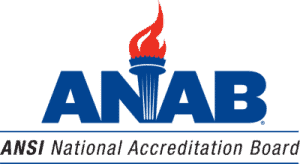What Is EPEAT Certification?

What is EPEAT?
The Electronic Products Environmental Assessment Tool (EPEAT) program assists high-performance, sustainable electronics purchasers. As the leading global Type 1 ecolabel, it covers products and services in the technology sector and currently includes the following product categories:
- Computers and Displays
- Imaging Equipment
- Mobile Phones
- Photovoltaic Modules and Inverters (PVMI)
- Televisions
- Servers
The Global Electronics Council (GEC) manages and sets the policies to ensure the EPEAT program is a helpful resource of environmental product ratings for people to make educated purchasing decisions. Those looking for active EPEAT-registered products can find them on the EPEAT website and better understand the benefits by using the EPEAT calculator.
Getting EPEAT Certification
Manufacturers who are interested in getting EPEAT product registration first select a Conformity Assurance Body (CAB). The CAB is qualified under ISO/IEC 17020 or ISO/IEC 17065 to ensure the product meets the EPEAT criteria. Manufacturers can use two credible ways for conformity assurance to show initial and ongoing EPEAT conformance, the Certification Pathway and the Priority Verification Pathway. The main differences between the two pathways are timing and the monitoring process.
The Certification Pathway
The Certification Pathway starts with the manufacturer submitting documentation for a review from a CAB. Next, the CAB selects one or more representative models to assess conformance. A configuration representative is found from a group of products with similar characteristics, and products are reviewed with the selected EPEAT Criteria. Before products are listed in the EPEAT Registry, all criteria are reviewed. Manufacturers can add more products afterward, which follows a similar process.
Continuous monitoring is performed throughout the year and an annual renewal is required for the Certification Pathway. The annual renewal includes a review of yearly reporting requirements and any product or corporate changes. If the criteria are passed for continuous monitoring, the initial review is valid for 3 years or until EPEAT criteria are revised.
The Priority Verification Pathway
Similar to the Certification Pathway, the Priority Verification Pathway starts with the manufacturer submitting documentation for a review from a CAB. The CAB then selects one or more representative models to assess conformance. In the Priority Verification Pathway, a sampling technique is used to review criteria across all products with the selected EPEAT Criteria. The criteria are split into two groups, being priority and non-priority, which are reviewed in different timelines. Priority criteria are reviewed before products are listed in the EPEAT Registry and non-priority criteria are reviewed up to 1 year after the initial listing. More products can be added later, which follows a similar process.
Continuous monitoring is performed throughout the year by CABs to check compliance with EPEAT. Products can also be selected for laboratory evaluation, and CABs will perform these lab evaluations by getting the product from the open market without the manufacturer knowing. If the criteria are passed for continuous monitoring, the initial review is valid until EPEAT criteria are revised.
It is important to note that for the continuous monitoring process for both pathways, there is a schedule of monitoring rounds that is available, as well as public records of the outcomes. This is for transparency and incentive for manufacturers in the program.
EPEAT Criteria
To be EPEAT Certified, there are specific criteria for each product category:
- Computers and Displays
- Imaging Equipment
- Mobile Phones
- UL 110 Edition 2 – 2017 Standard for Sustainability for Mobile Phones
- Network Equipment
- Criteria for the Sustainability Assessment of Network Equipment for the Global Electronics Council EPEAT® Ecolabel and the TÜV Rheinland Green Product Mark
- Photovoltaic Modules and Inverters
- NSF/ANSI 457-2019: Sustainability Leadership Standard For Photovoltaic Modules And Photovoltaic Inverters (learn more about this standard in our post Solar PV Modules – Sustainability Leadership Objectives)
- Servers
- Televisions
ANAB Accreditation for the EPEAT Program
EPEAT certification for manufacturers brings a competitive edge for a more impactful product that increasingly environmentally aware purchasers seek out.
CABs that want to verify environmental performance claims can instill trust in their oversight through ANAB accreditation for the EPEAT program. You can request a quote here. For more information, contact ANAB at [email protected] or 414-501-5494.






